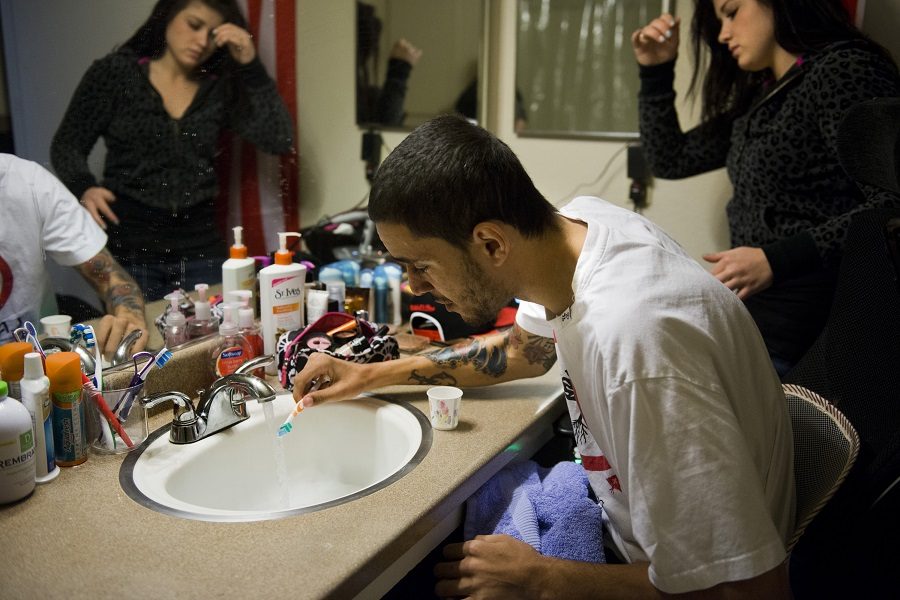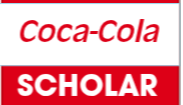No stain, no gain
New teeth whitening trend involves surprising ingredient, hint: look in your face mask
Devin Johnson brushes his teeth as his girlfriend and caregiver, Tayler Miller, assists on January 11, 2013. Johnson recently learned to grip the toothbrush well enough to perform the task. (Autumn Payne/Sacramento Bee/MCT)
If you scroll through your Instagram page, chances are, you will see people brushing their teeth and having the blackest, nastiest-looking substance on it. No, this is not a temporary infatuation with gross teeth; it is a natural teeth-whitening trend from activated charcoal powder that is taking social media by storm.
It is no secret that everyone wants whiter teeth, myself included. To this day, I am still haunted by this backhanded compliment given to me by a friend. Although he was honestly trying to compliment me, his exact words were, “I like your teeth. They are really straight and yellow.” Yellow.
My mom, of course, does not think a dental whitening treatment is necessary because as she always tells me, “Nobody can notice.” Needless to say, I am on the lookout for a natural way to whiten my teeth.
But before you jump on the bandwagon, it is important to research the product and the process as well as potential concerns. All over social media, ads, blogs, and YouTube, beauty-gurus and even average people are swearing that their teeth are so much whiter after using activated charcoal powder. Note, this is not the same charcoal you use for the barbecues.
According to Carbon Coco, one of the brands selling activated charcoal powder, “Activated charcoal does not just whiten your teeth because it also removes the toxins in your body. When you brush with charcoal, it absorbs toxins that are on your teeth’s surface.”
It is believable that the substance removes toxins from your body when you swallow it, as activated charcoal is commonly ingested to treat food poisoning and such; however, the black substance-absorbing toxins and surface stains from teeth seems a little like voodoo magic.
Now what is the catch? Is this too good to be true?
The number one concern is the potential abrasiveness of the activated charcoal powder.
“Like any abrasive, we’re worried about the effects on the gums and enamel on the teeth. We don’t know about the safety and effectiveness of it,” said American Dental Association Dr. Kim Harms.
On the other hand, many people who have tried it offer ways to address this uninvestigated question. Katie Wells on Wellness Mama asked her dentist friend. She suggested to those who are concerned to dab the charcoal onto the teeth and letting it sit for two minutes before rinsing it off and brushing your teeth like normal.
Others additionally tried to counter the potential abrasiveness issue by recommending to brush softly or by using coconut or bamboo activated charcoal powder, which are both finer than hardwood activated charcoal powder. Another suggestion is to not brush with the charcoal every day.
Ultimately, using activated charcoal is a judgment call. Although the topic is not well-researched by the dental authorities, the reviews on the substance are nothing less than stellar.
Your donation will support the student journalists of Sycamore High School. Your contribution will allow us to purchase equipment and cover our annual website hosting costs.







